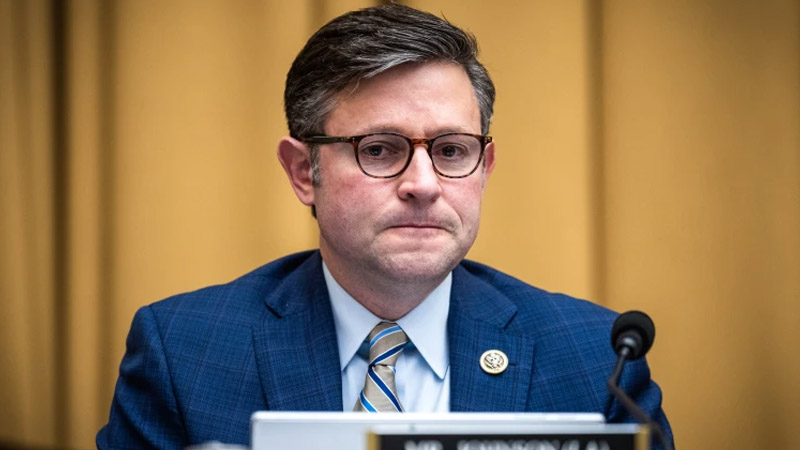Pressure Mounts on US Rep. Mike Johnson to Advance Foreign Aid Bill Amid Global Tensions

Bill Clark / CQ-Roll Call Inc. via Getty Images file
U.S. Representative Mike Johnson, a Republican from Louisiana, faced intense bipartisan pressure to bring a bill on foreign aid for Ukraine and Israel to the House floor. This push came amid escalating global tensions, highlighted by Iran’s reported launch of over 100 drones toward Israel during a continuing violent conflict with Hamas that erupted from an offensive in Gaza in October.
The bipartisan call for action swiftly targeted Johnson, who had been delaying the advancement of foreign aid legislation. Bill Kristol, a conservative political analyst, urged, “Put the Ukraine and Israel aid package on the floor of the House Monday,” in light of the recent attacks. This sentiment was echoed by Tommy Lund, a journalist with Reuters, who noted that the aid bill would now carry additional significance given the current international crises.
Democratic Representative Jared Moskowitz from Florida also weighed in, pressing Johnson to prioritize a supplemental aid package that would bolster allies against Iranian aggression. Alyssa Farah Griffin, a former Trump administration aide, suggested that the lack of action from the U.S. House of Representatives could be seen as contributing to the geopolitical instability.
She emphasized that Iran’s aggression could be interpreted as a reaction to Congressional inaction, with adversaries closely observing and potentially exploiting legislative delays. Jon Cooper, a Democratic campaign finance executive, expanded on this by linking the military alliances between Russia, Iran, and Hamas. He argued that supporting Ukraine with U.S. aid indirectly benefits Israel and that the obstruction of aid underlines the adversaries’ emboldened stance against the U.S., compromising national security. Cooper strongly advocated for an urgent House vote on the aid package encompassing Ukraine, Israel, and Taiwan.
In response to the mounting criticism and the urgent geopolitical situation, Speaker Johnson emphasized America’s commitment to standing with Israel against the Iranian attacks. He vowed to continue discussions with the White House to ensure a robust response, critiquing the Biden Administration’s approach towards Israel and Iran as contributing factors to the crisis.
Johnson’s stance reflects a broader narrative of U.S. legislative challenges and geopolitical strategies, highlighting the complexities of international alliances and aid dynamics. As debates continue and the world watches, the urgency for decisive Congressional action on the foreign aid bills remains a critical issue, underpinning the intertwined fates of global diplomacy and domestic political maneuvers.


